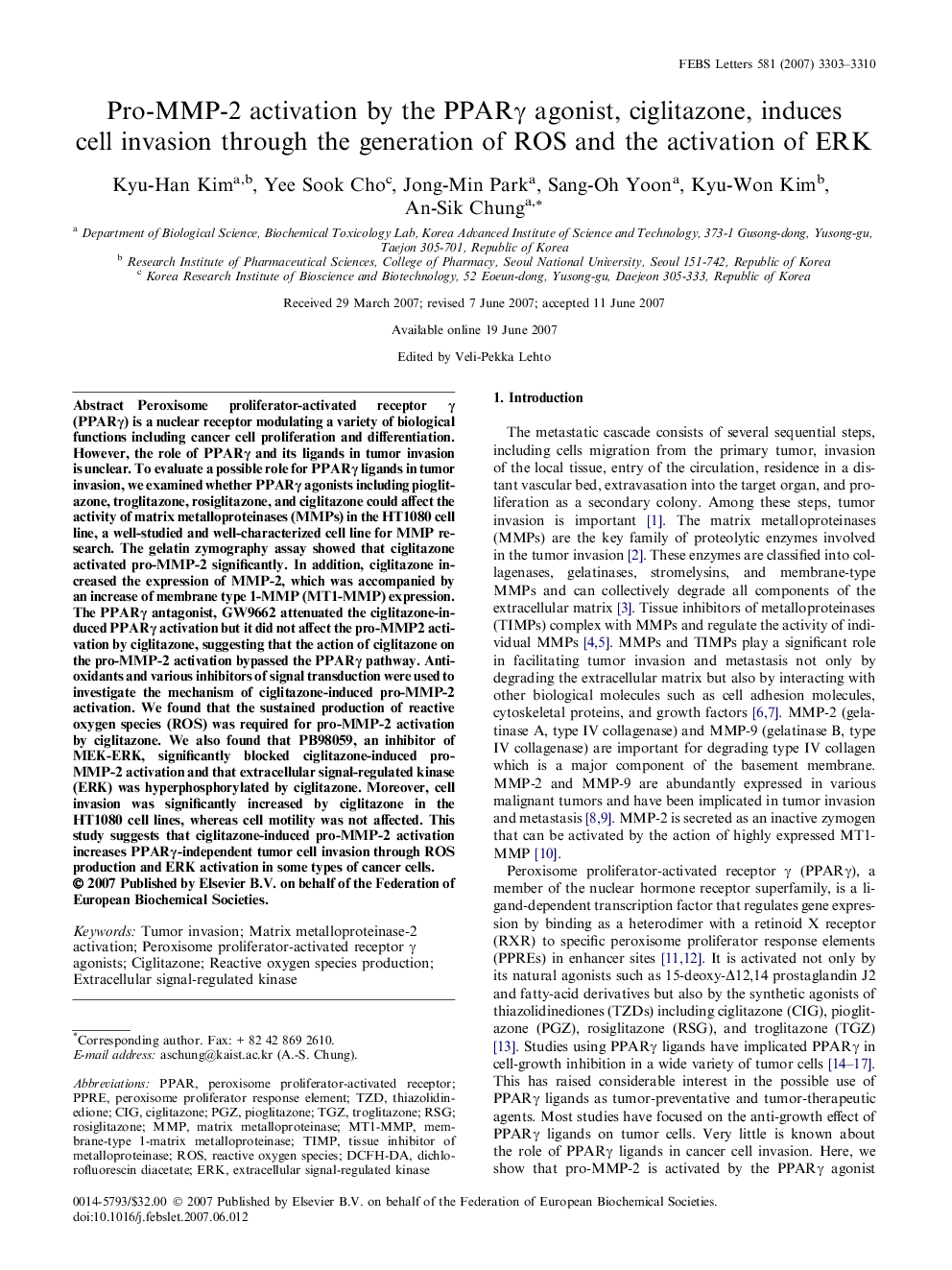| Article ID | Journal | Published Year | Pages | File Type |
|---|---|---|---|---|
| 2050755 | FEBS Letters | 2007 | 8 Pages |
Peroxisome proliferator-activated receptor γ (PPARγ) is a nuclear receptor modulating a variety of biological functions including cancer cell proliferation and differentiation. However, the role of PPARγ and its ligands in tumor invasion is unclear. To evaluate a possible role for PPARγ ligands in tumor invasion, we examined whether PPARγ agonists including pioglitazone, troglitazone, rosiglitazone, and ciglitazone could affect the activity of matrix metalloproteinases (MMPs) in the HT1080 cell line, a well-studied and well-characterized cell line for MMP research. The gelatin zymography assay showed that ciglitazone activated pro-MMP-2 significantly. In addition, ciglitazone increased the expression of MMP-2, which was accompanied by an increase of membrane type 1-MMP (MT1-MMP) expression. The PPARγ antagonist, GW9662 attenuated the ciglitazone-induced PPARγ activation but it did not affect the pro-MMP2 activation by ciglitazone, suggesting that the action of ciglitazone on the pro-MMP-2 activation bypassed the PPARγ pathway. Antioxidants and various inhibitors of signal transduction were used to investigate the mechanism of ciglitazone-induced pro-MMP-2 activation. We found that the sustained production of reactive oxygen species (ROS) was required for pro-MMP-2 activation by ciglitazone. We also found that PB98059, an inhibitor of MEK-ERK, significantly blocked ciglitazone-induced pro-MMP-2 activation and that extracellular signal-regulated kinase (ERK) was hyperphosphorylated by ciglitazone. Moreover, cell invasion was significantly increased by ciglitazone in the HT1080 cell lines, whereas cell motility was not affected. This study suggests that ciglitazone-induced pro-MMP-2 activation increases PPARγ-independent tumor cell invasion through ROS production and ERK activation in some types of cancer cells.
